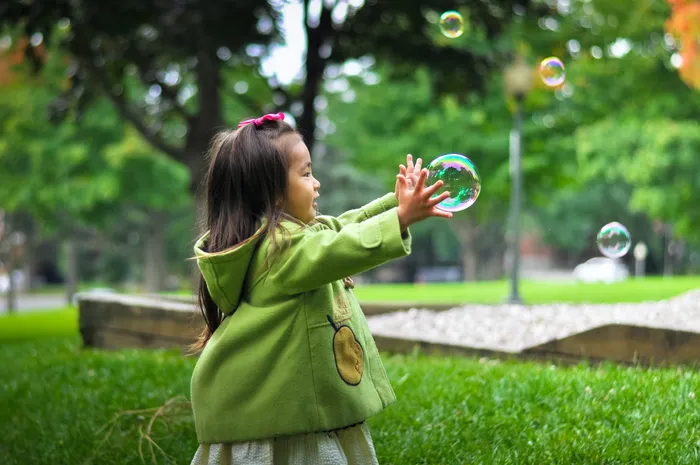How to stimulate sensory building for your baby, from a child development expert

Children learn through engaging with the world around them. Their five familiar senses help them process what they experience. Picture: Leo Rivas /Unsplash
The early years of a child’s life are very important for their health and development. Having a safe and loving home and spending time with family - playing, singing, reading and talking - are very important.
The CDC states that children develop at their own pace, so it’s impossible to tell exactly when a child will learn a given skill. However, the developmental milestones give a general idea of the changes to expect as a child gets older.
These magical gateways allow them to make sense of the world around them. But did you know that even before they enter this world, babies are already attuned to the comforting sound of their mother's voice and the gentle rhythm of her heartbeat?
Children learn through engaging with the world around them. Their five familiar senses help them process what they experience.
You may already know that even before babies are born, they can hear their mom’s voice and heartbeat. A sense of touch has also begun to develop.
Auditory, tactile and visual skills will be especially important later on when it comes to academics, said Lisa Lohiser, Ed.D. Early Childhood Development expert and Researcher
Here are some sensory-building thoughts for you and your little one:
Black & white: A kaleidoscope of discovery
Interestingly black and white reign supreme. These contrasting colours excite your baby's visual senses while also laying the groundwork for their future visual acuity.
However, as your child approaches the age of 2-3 months, his or her eyes begin to want bright colours.
Embrace the kaleidoscope of high-contrast colours, such as red, to keep their senses engaged and their curiosity stimulated.
Let them explore
Babies are born explorers, eager to uncover every secret the universe holds, by tearing the house upside down. Encourage and embrace children's insatiable curiosity.
Their senses flourish and cognitive, physical, and social-emotional skills develop through exploration.
Nurture their innate desire to learn and grow by encouraging them to touch, feel and interact with their surroundings.
Toys as sensory tools
Toys with mirrors provide self-discovery. Gyms with overhead toys promote eye-tracking, and toys with auditory feedback (sounds or lights or both) help with cause and effect.
And of course, textured teethers - all babies start their sensory exploration by putting things in their mouths!
Beware sensory overwhelm
If you find your baby turning their head or growing fussy during playtime, they might be overstimulated. Just as adults understand the overwhelming nature of sensory overload, it is crucial to introduce one new toy or activity at a time.
Give them the space to process the sensory information they encounter, gradually building their tolerance. If you have any concerns about your child's reaction to sensory play, remember to consult your paediatrician for guidance and reassurance.
Here are a couple of sensory tips you may not have thought of:
Turn diaper duty into a sensory experience
Changing your baby’s diaper is a great opportunity to engage all their senses (except taste, that is!). The feel of the lotion on their skin, your touch, seeing your face, hearing you talk or sing—what a wonderful bonding time as well!
From the gentle touch of lotion on their delicate skin to the warmth of your embrace, this intimate moment becomes a sensory extravaganza.
Witness the joy in their eyes as they hear your soothing voice or the melody of your lullaby. It's not just a diaper change; it's a moment of profound bonding that stimulates their senses.
Embrace the mess, let them play with their food
Yes, you read it right! As your baby grows older, mealtime becomes an extraordinary sensory experience. Different aromas, tastes, and textures await their exploration.
Embrace the messiness, for it is through this sensory-rich adventure that they discover the world of culinary delights.
Hold it
Once your baby is about 3 months old, try gently opening their fist to help them hold a small rattle. This will introduce a whole new way for them to engage their senses independently and help them begin to understand their actions can make things happen!
Play with your senses
Play is the perfect way to help your baby with sensory development.
Related Topics: